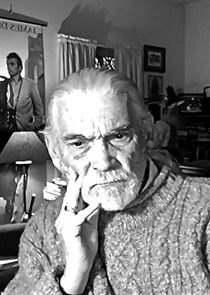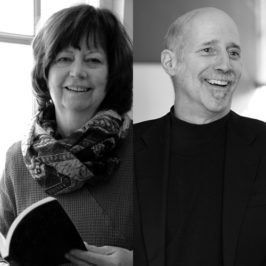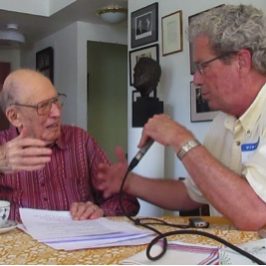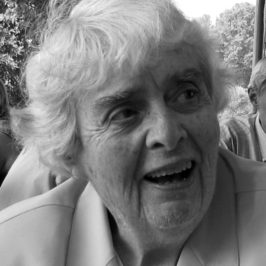
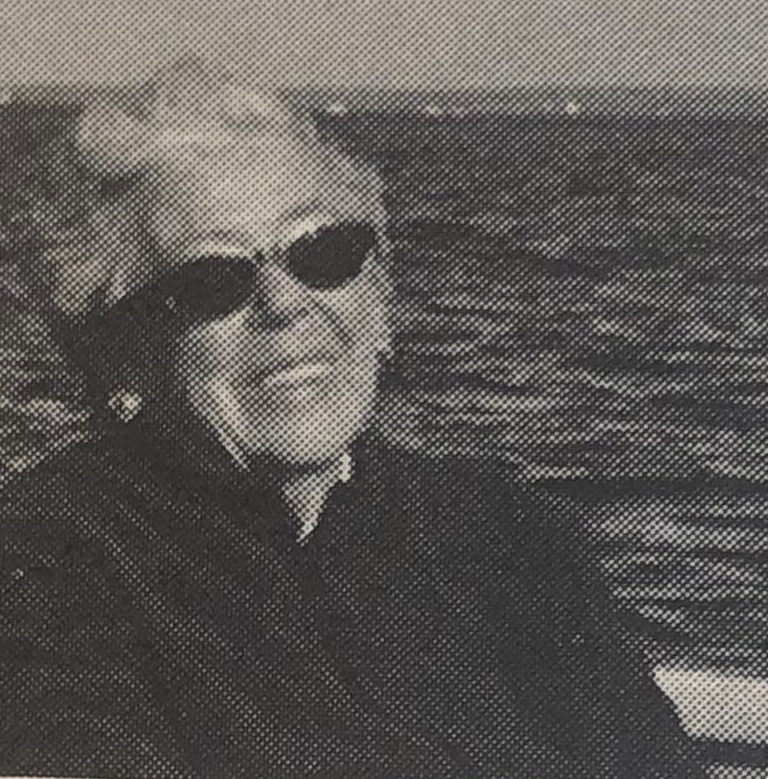

Three pieces about numbers from Wilderness Sarchild, Christine O’Connor and Marie Anderson.
7 minutes
TRANSCRIPT
On this episode, three pieces about numbers. First, from her book Old Women Talking, Wilderness Sarchild’s “Playing the Numbers.”
When my grandparents emigrated from Russia
it was as if my family’s history was erased
from the Book of Life. No stories from the old
country journeyed from there to our kitchen table.
Just the two of them—Rosa and Abram—
alone in the new world. In America
they set about procreating
my mother Sara
my uncle Mose
my aunt Raisa.
—Two plus three equals five.
Abram dropped dead, left Rosa with three toddlers.
She sold homemade bagels and opened
a pawn shop alongside the Kanawha River.
—Five minus one equals four.
Rosa married again, a new man in town,
then found out he already had a wife in another town.
She called the police to take him away.
—Four plus one equals five
minus one equals four.
When he was eighteen
Mose eloped with his girlfriend.
—Four plus one equals five.
They returned the next day,
she to her mother’s house; he to his.
—Five minus one equals four.
Mose lived with his mother until
she collapsed over her mop and pail.
—Four minus one equals three.
Raisa moved to DC, lived
a lonely life in a dorm room
for working ladies. She didn’t
tell anyone she had cancer.
—Three minus one equals two.
My mother met my father
in a diner. She asked
for a bite of his egg.
—Two plus one became three.
My brother Mike arrived
just before our dad was sent
to fight overseas.
I came five years later,
after the war had ended.
—Three plus two equals five.
Mike married Cheryl. She left
him for another man. Then he
married Judy and they had
Jamey. Judy left Mike
for a cult. He married
Paula. They wanted babies
but that didn’t happen.
—Five plus one minus one
plus two minus one
plus one plus zero equals seven.
I married Steve who liked
to dress up in women’s clothes
and keep guns in the drawer
next to his side of the bed.
Seven years and two kids later
—Seven plus one plus two minus one
equals nine.
Then I married Chuck.
That was thirty-five years ago
and still counting.
—Nine plus one equals ten.
Mom got Alzheimers,
died seven years later
in a nursing home. Mose
followed. Doc said he had
less than twenty-four hours to live,
but he was ornery, lasted
three more years. Then
Dad just gave up.
—Ten minus three equals seven.
My brother and I have
three children between us.
They’re all married now
with children of their own.
—Seven plus three plus six
equals sixteen.
I’m teaching my grandchildren
how to count.
“Playing the Numbers.” Wilderness Sarchild from her book Old Women Talking.
In Passager’s Winter, 2009 issue, Christine O’Connor said that she’d lived in the same small New Jersey town since she was born 90 years ago. Here’s her poem “The Wake.”
He sits alone in a crowded room,
a big man on a small chair,
looking prayerful but
actually counting flowers
as the priest drones on.
100, 101, 102 carnations —
30 pink, 40 white, 32 red —
36 roses, too many colors to divide.
Just as he loses count of the mums
he realizes prayers are over.
Soon he will approach the bier
and look at her, remembering:
she had loved most flowers,
all children, and Sunday dinner.
He could smell the leg of lamb.
For now he goes back to counting:
25, 26, 27 lilies — she hated lilies.
Christine S. O’Connor’s poem “The Wake” from Passager Issue 47.
Finally, a couple excerpts from Marie Anderson’s story “A Chemical Equation” from Passager Issue 62.
“How much do you practice, Warren?”
“You know. Every effin’ day.”
“Is there anything else you practice every effing day, Warren? I think you still love music if you’re doing it every day.”
“My parents make me,” Warren said. “It’s all a sham.”
“Why do you say that, Warren? I’m perplexed.”
“Because I put out seven hours a week practicing, $30 a week for my lesson with you, $160 for a pendulum metronome that UPS just delivered yesterday, and I hate the piano, I hate you, and I hate my parents for taking $160 outta my savings account to pay for the effin’ pendulum metronome you told them I had to get!” . . .
. . . Mrs. Muckles made Warren start his daily practice sessions by doing the appropriate scales. The appropriate effin’ scales, Warren cursed silently every day while he did the arpeggios, harmonics, triads, inversions, and cadence chords.
Now he zoomed through the cadence chords, pounding and pedaling and shouting, “I spend more time and money on an effin’ piano than I do on my girlfriend!”
A smile deepened the wrinkles on Mrs. Muckles’ feathery face. “Now, now, Warren. Your parents pay for your lessons, not you. And you’re telling me that you, an unattractive, trash-talking oaf of a boy has a girlfriend? I think not.”
Excerpts from “A Chemical Equation” by Marie Anderson. Marie said the story was inspired by her years of supervising children in after-school programs and during their lunch recess.
To buy Wilderness Sarchild’s book Old Women Talking, subscribe to or learn more about Passager and its commitment to writers over 50, go to passagerbooks.com. You can download Burning Bright from Spotify, Apple and Google Podcasts, and various other podcast apps.
For Kendra, Mary, Christine, Rosanne, and the rest of the Passager staff, I’m Jon Shorr.


